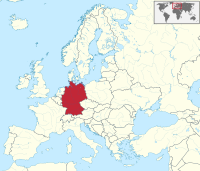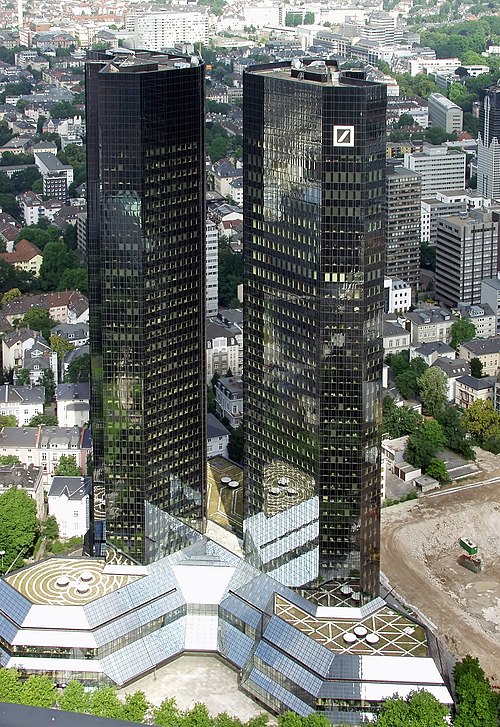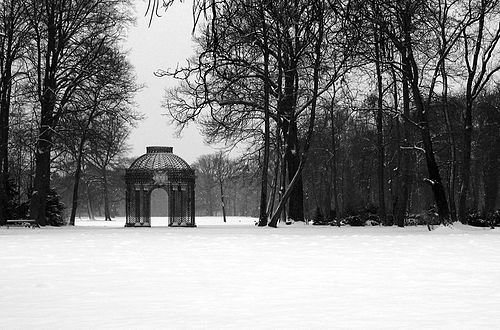Portal:Germany
Welcome to the Germany Portal!
Willkommen im Deutschland-Portal!

|

|

| |
Germany (German: Deutschland), officially the Federal Republic of Germany, is a country in Central and Western Europe, lying between the Baltic and North Sea to the north and the Alps to the south. It borders Denmark to the north, Poland and the Czech Republic to the east, Austria and Switzerland to the south, France to the southwest, and Luxembourg, Belgium and the Netherlands to the west.
Germany includes 16 constituent states, covers an area of 357,578 square kilometres (138,062 sq mi) and has a largely temperate seasonal climate. With nearly 83 million inhabitants, it is the second most populous state of Europe after Russia, the most populous state lying entirely in Europe, as well as the most populous member state of the European Union. Germany is a very decentralized country. Its capital and largest metropolis is Berlin, while Frankfurt serves as its financial capital and has the country's busiest airport.
In 1871, Germany became a nation-state when most of the German states unified into the Prussian-dominated German Empire. After World War I and the Revolution of 1918–19, the empire was replaced by the parliamentary Weimar Republic. The Nazi seizure of power in 1933 led to World War II, and the Holocaust. After the end of World War II in Europe and a period of Allied occupation, two new German states were founded: West Germany, formed from the American, British, and French occupation zones, and East Germany, formed from the western part of the Soviet occupation zone, reduced by the newly established Oder-Neisse line. Following the Revolutions of 1989 that ended communist rule in Central and Eastern Europe, the country was reunified on 3 October 1990.
Today, Germany is a federal parliamentary republic led by a chancellor. It is a great power with a strong economy. The Federal Republic of Germany was a founding member of the European Economic Community in 1957 and the European Union in 1993. Read more...
Selected article

SMS Lothringen was the last of five pre-dreadnought battleships of the Braunschweig class, built for the German Kaiserliche Marine (Imperial Navy). She was laid down in December 1902, was launched in May 1904, and was commissioned in May 1906. She was named for Lothringen (now Lorraine), a province of the German Empire from 1871 to 1918. The ship was armed with a battery of four 28 cm (11 in) guns and had a top speed of 18 knots (33 km/h; 21 mph). Like all other pre-dreadnoughts built around the turn of the century, Lothringen was quickly made obsolete by the launching of the revolutionary HMS Dreadnought in December 1906; as a result, her career as a front-line battleship was cut short.
Lothringen's peacetime career centered on squadron and fleet exercises and training cruises with II Battle Squadron. Scheduled to be withdrawn from service in July 1914 and replaced by newer dreadnought battleships, the outbreak of World War I that month prevented her retirement. She spent the first two years of the war primarily serving as a guard ship in the German Bight. She and the rest of II Squadron joined the dreadnoughts of the High Seas Fleet to support the raid on Scarborough, Hartlepool, and Whitby in December 1914. In poor condition by 1916, she was withdrawn from fleet service in February. She thereafter patrolled the Danish straits until she was replaced by the battleship Hannover in September 1917. She spent the rest of the war as a disarmed training ship.
After the war, Lothringen was retained by the re-formed Reichsmarine and converted into a depot ship for F-type minesweepers from 1919 to 1920. After the task of clearing the wartime minefields in the North Sea was completed, she was placed in reserve in March 1920. The ship remained inactive for the next decade and was stricken from the naval register in March 1931 and sold to ship breakers later that year. (Full article...)
Selected picture
Related portals
- Parent portals
- Regional
- History
 Holy Roman Empire (900–1806)
Holy Roman Empire (900–1806) East Germany (1949–1990)
East Germany (1949–1990)
- Neighbouring countries
Anniversaries for January 31

- 1665 – Death of theologian Johannes Clauberg
- 1884 – Birth of physicist Rudolf Mössbauer, winner of the 1961 Nobel Prize in Physics
- 1884 – Birth of Theodor Heuss, President of Germany 1949-1959
Did you know...
- ... that Theresia Bauer was named science minister of the year four times?
- ... that while Germans murdered millions of prisoners of war during WWII, the survival ratio of Jewish POWs was generally tied to the army or nation they served with, and not to their ethnicity?
- ... that while Schubert wrote a melody for the song "Bunt sind schon die Wälder" in 1816, Johann Friedrich Reichardt's 1799 version is the one that remains popular?
- ... that on 26 December 1724 J. S. Bach directed the first performance of Christum wir sollen loben schon, BWV 121, based on a hymn written by Martin Luther in 1524?
- ... that the main cemetery of Mainz was established in 1803 and became the model for the Cimetière du Père-Lachaise in Paris?
- ... that German-born physician Pablo Busch (pictured) was labelled a "witch or curandero" by indigenous tribes in Bolivia?
- ... that Perplexities after Escher, a composition for heckelphone, string quartet and double bass, is based on five graphic artworks by M. C. Escher?
- ... that in addition to millions murdered, Nazi crimes against children included compulsory sterilization, forced labor, forced institutionalization, medical experiments and Germanisation?
Selected cuisines, dishes and foods

Topics
Categories
Things you can do

A list of articles needing cleanup associated with this project is available. See also the tool's wiki page and the index of WikiProjects.
Here are some tasks you can do. Please remove completed tasks from the list.
- Requests: German Archaeological Institute at Rome, Deutsche Familienversicherung, Dietlof von Arnim-Boitzenburg, Rolf von Bargen, Hennes Bender, Eduard Georg von Bethusy-Huc, Rolf Brandt (1886–1953), Jan Philipp Burgard, Lisa Feller, Georg Arbogast von und zu Franckenstein, Georg Gafron, Ferdinand Heribert von Galen, Gundula Gause, Karl-Heinz Hagen, Herbert Helmrich, Nils von der Heyde, Monty Jacobs (1875–1945), , Siegfried Kauder, Matze Knop, Wolfgang Kryszohn, Claus Larass, Isidor Levy (1852–1929), Markus Löning, Tobias Mann, Mathias Müller von Blumencron ,Günther Nonnenmacher Anke Plättner, Hans Heinrich X. Fürst von Pless, Gerd Poppe, Victor-Emanuel Preusker, Günter Prinz, Ulrich Reitz, Hans Sauer (inventor), Franz August Schenk von Stauffenberg, Paul Schlesinger (1878-1928), Hajo Schumacher, Otto Theodor von Seydewitz, Christoph Sieber (comedian), Dorothea Siems, Werner Sonne, Udo zu Stolberg-Wernigerode, Christoph Strässer, Joseph von Utzschneider, Jürgen Wieshoff, Hans Wilhelmi, Dietmar Wischmeyer, Alexandra Würzbach
- Unreferenced: Unreferenced BLPs, Bundesautobahn 93, Benjamin Trinks, Steeler (German band), Amelie Beese, Zoologisches Museum in Kiel, Emil Krebs, Prussian semaphore system, Partenstein, Peter Krieg, Porsche 597, Christa Bauch, Curt Cress, Stefan Beuse
- Cleanup: 53541 issues in total as of 2024-03-03
- Translate: Articles needing translation from German Wikipedia
- Stubs: Albersdorf, Thuringia, Ingo Friedrich, Berndt Seite, Federal Social Court; 117 articles in Category:German MEP stubs
- Update: Deutsches Wörterbuch
- Portal maintenance: Update News, Did you know, announcements and the todo list
- Orphans:
Orphaned articles in Germany

- Photo: Take/Add requested photographs
- Help assess the quality of 909 unassessed articles
Associated Wikimedia
The following Wikimedia Foundation sister projects provide more on this subject:
-
Commons
Free media repository -
Wikibooks
Free textbooks and manuals -
Wikidata
Free knowledge base -
Wikinews
Free-content news -
Wikiquote
Collection of quotations -
Wikisource
Free-content library -
Wikiversity
Free learning tools -
Wikivoyage
Free travel guide -
Wiktionary
Dictionary and thesaurus














































